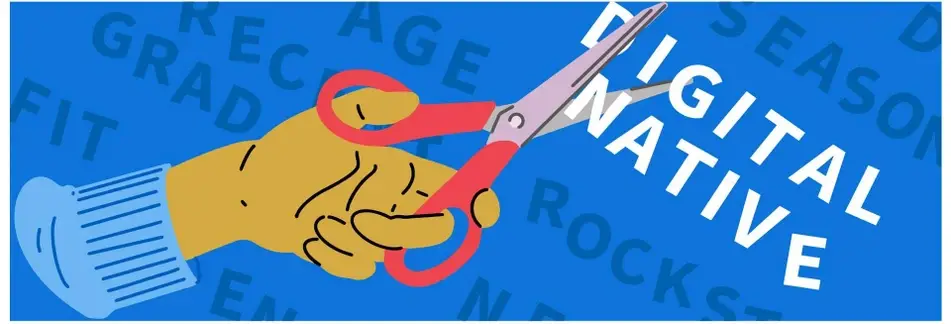Reducing Age Discrimination in Social-Impact Hiring

We often survey members of the Idealist community—your organization's future job applicants, promising candidates, and employees—about their experience looking for roles in our sector, and something we’ve heard over the years is that many job seekers experience ageism during their search.
It’s not a surprise; depictions of older people in our culture insinuate that they are a tech-fearing monolith, disinterested in learning anything new. At the same time, younger job seekers face ageism of a different sort, as it’s often assumed that they are internet-embedded, spoiled, and willing to jump ship when they don’t get a promotion.
We all know, and must do, better. The point of urging others and ourselves to pay closer attention to different forms of bias is in the name of diversity, equity, and inclusion, which can help us build stronger workforces with qualified staff members. When we make an effort to include candidates that bring varied experiences and skills, we can honestly say we are doing the work to build a more inclusive sector.
Read on for suggestions on how to reduce age discrimination in hiring:
Age discrimination in the hiring process
Organizations tend to specify how many years of experience they’d like a candidate to have; you may be looking for a new hire who can hit the ground running and doesn’t need to be trained on asking a major donor to increase their annual gift.
As much as possible, we suggest listing minimum requirements for years of experience, but not maximums. If you say you’re looking for a candidate with ten to fifteen years of experience, you may eliminate excellent candidates who’ve done that work for twenty-five years. As long as a solid candidate makes a compelling argument for why they want the job, you should consider their candidacy—no matter how much experience they do or don’t have.
I am 60 and out of work long term… [I] cannot find a job at anywhere near a living wage... I have thirty years [plus] of work experience. I did not become radioactive overnight so I attribute this dilemma largely to ageism no matter all the cute jargon and buzzwords people try to use to justify NOT hiring people in my demographic.
Similarly, there are times when a younger candidate gets filtered out of consideration for a leadership opportunity. Maybe they’ve never managed a large team, but they’ve successfully implemented huge organizing and advocacy campaigns with many stakeholders. Looking at graduation year as an indication of whether someone is qualified may mean you’ve removed excellent candidates from your radar.
A fail-safe strategy for vetting any candidate, regardless of age, is conducting a skills test; these can even be done as a part of the application process. While not every type of role easily lends itself to a skills check, it’s worth considering, and ensures equity in the hiring process.
For example, when we’re hiring for our Community Support Team (the folks that help Idealist administrators use idealist.org), we ask candidates to write a sample email to a pretend admin. This allows us to see if they are a clear communicator—a strict must-have for the role.
Job listing codewords that promote exclusion
We’ve already touched on including required years of experience in a job listing, but here are some ageist phrases to avoid:
- Without using names, we’ve seen organizations post roles on Idealist looking for “digital natives.” This is thinly-veiled ageism, because this moniker cannot apply to everyone, and because older employees may be perceived as being out of touch with current technology.
- “Recent grads” can come across as exclusionary, especially as it evokes a traditionally-aged student who recently graduated from college.
- Similarly, looking for a “rockstar” may infer that older applicants are not the target audience.
- On the other hand, the term “seasoned professional” can be used to discourage younger applicants.
Bottom line: be careful with the language you use to describe an ideal candidate. Ideally, you’ll avoid this altogether.
Compensation
We urge all organizations to post a salary range in job listings. Do it for the sake of equity, but also, for transparency—a candidate who knows the range won’t be surprised later on when they get the offer.
With the range in mind, don’t automatically assume that a more experienced candidate won’t be interested in the salary you’re offering, or that they’re “too expensive.” If it’s posted ahead of time, you can assume that they understand that compensation might be lower than what they are currently making. It’s possible that your organization is offering other forms of compensation or benefits that they appreciate, such as a flexible schedule, comprehensive or competitive healthcare benefits, and the like.
Keep an open mind
Our brains reach for shorthand so that decision-making may be easier—assumptions, norms, the way you’re used to doing something. We all do this in all facets of our lives, including hiring. But for the sake of equity, we need to slow down.
Carefully editing job listings and considering candidates outside of a typical profile takes more time and effort, but the possible rewards for your organization to bring on truly diverse staff are incalculable.
- **
Want to share your own tips for combating age discrimination in hiring, or offer other perspectives? Please write to hello@idealist.org with any and all feedback!






